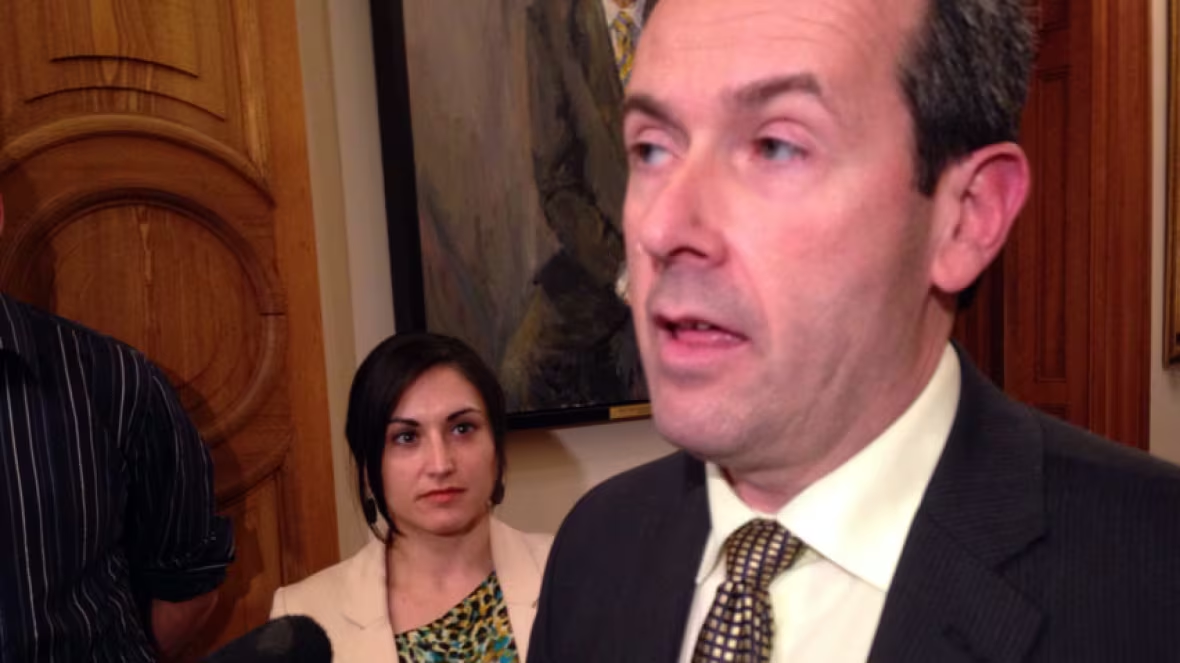Serge Rousselle sends dual busing case to appeal court
Government wants court to rule, but Education Minister Serge Rousselle says he's confident in position
The reference process includes cabinet drafting one or more questions for the court to answer, Rousselle said.
Last month, New Democratic Party Leader Dominic Cardy called for a judicial review of the provincial policy of requiring separate school buses for students in the English and French school systems.
The provincial government maintains that separate bus systems are required in New Brunswick under the constitutional provisions for duality in education.

While the court must take the case, it can reject or rephrase the questions posed if it feels they are not constitutional or legal questions, but rather political.
It will be up to the Court of Appeal to decide whether to appoint a "friend of the court" to argue against the government's position, Rousselle said.
Cardy is pleased.
"I'm glad that after a month of personal attacks against me, and saying I was evil for raising the subject, that the government now agrees and the Liberals are on board with the NDP that you can deal with difficult conversations, you can push for a strong bilingual province and still ask the court to deal with difficult questions," he said on Thursday.
If we have to go to court to decide our democracy, we don't have much of a democracy.- Jason McBride, anti-bilingualism petition organizer
Jason McBride, the organizer of an anti-bilingualism petition, says his group will consider applying to the court for intervener status in the proceedings.
If the court upholds dual busing, McBride says he still won't be persuaded. He contends it should be up to voters.
"If the court goes yea or nay, there's right and there's wrong. Regardless of what the court says … if we have to go to court to decide our democracy, we don't have much of a democracy," he said.
Ruling not binding
The Court of Appeal's reference ruling will be advisory only. It is technically not binding, but the University of Alberta law school guide to reference cases states there is no known case where a court went against a reference ruling.
A reference ruling by a provincial Court of Appeal is, however, subject to appeal to the Supreme Court of Canada.
Cardy has cited the Supreme Court of Canada ruling about a French school in Summerside, which says school buses were not an "educational institution," to argue buses are not covered by the Section 16 Charter provisions guaranteeing English and French communities in New Brunswick the right to their own educational institutions.
However Michel Doucet, of the University of Moncton, says Cardy is not looking at the decision as a whole.
Elsewhere it states that transportation can have an impact of the vitality of a minority language community, said Doucet.
That means section 23, on minority language rights, would come into play and protect the dual system, particularly in light of the 1999 Supreme Court of Canada Beaulac decision, which says all language rights must be interpreted broadly, looking not just at their direct meaning but at their "purpose," including minority language protection, he said.
Each province has a law outlining how the government can take a reference case to the province's highest court.
In Ottawa's case, it's the Supreme Court of Canada. Recent examples have included the Harper government questioning how to change or abolish the Senate, and the Chretien government on whether Quebec could become independent without constitutional negotiations with rest of Canada.